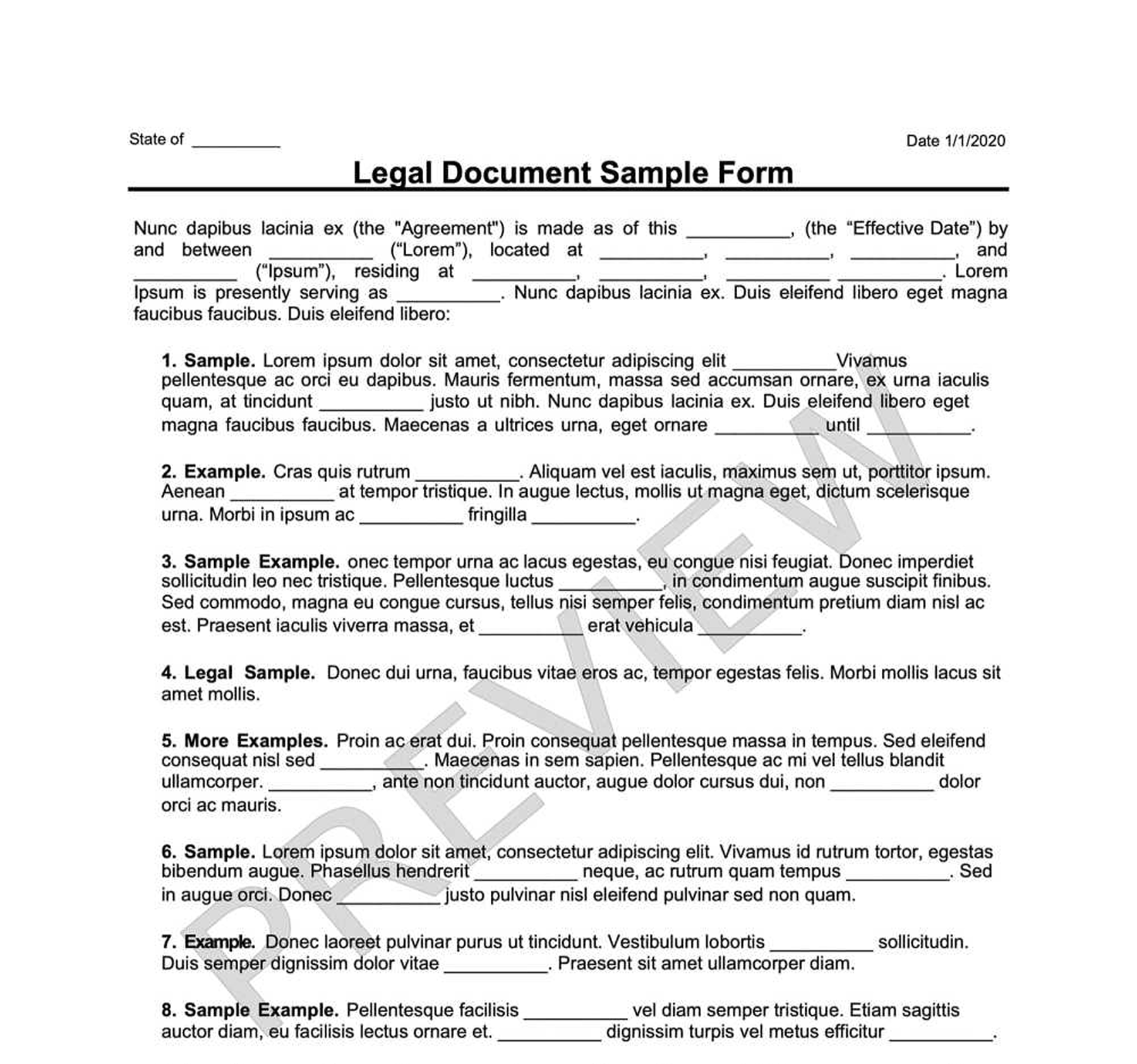Nomination of Guardian for Minor
A Nomination of Guardian for Minor is used by parents to appoint an individual who will act as a legal guardian for their minor children in the unfortunate event they pass away or become unfit.

How it Works
Build your selected document.
Answer a few simple questions with step-by-step instructions.
Print & download forms instantly. Sign & make it legal.
What Is a Nomination of Guardian for Minor?
What Is a Nomination of Guardian for Minor?
Thinking about dying before your child turns 18 is terrifying. Understandably, most parents don't want to think about such scenarios. If a parent dies unexpectedly, the child is already experiencing trauma. But without an appointed guardian, the child might even end up in a foster home.
While no parent can prevent all terrible things from happening, they can use a Nomination of Guardian for Minor to appoint an individual who will take care of their children. With this nomination, parents can safeguard their children's wellbeing. When choosing a guardian, it is vital to confirm that they wish to accept the role.
A family court has the ultimate decision on the best guardian for the child, but having a Nomination of Guardian for Minor makes the appointed guardian much more likely to be chosen.
Other Names for the Nomination of Guardian for Minor
Depending on your state, a Nomination of Guardian for Minor may also be known as:
- Petition for Appointment of Guardian
- Petition for Appointment of Guardian for Minor
- Order Appointing Guardian
- Letter of Guardianship
- Petition for Conservatorship
Who Needs a Nomination of Guardian for Minor?
Every parent should name a guardian for their children. With a Nomination of Guardian for Minor, parents can have peace of mind knowing that, if the worst should happen, someone they trust will bring up their child in a safe environment.
Why Use Swyft Forms for the Nomination of Guardian for Minor?
Customized for you, by you
Create your own documents by answering our easy-to-understand questionnaires to get exactly what you need out of your Nomination of Guardian for Minor.
Specific to Your Jurisdiction
Laws vary by location. Each document on Swyft Forms is customized for your state.
How to Create a Nomination of Guardian for Minor with Swyft Forms
Thinking about appointing a guardian for a your child is already stressful. Fortunately, parents don't have to go through the trouble of creating a Nomination of Guardian for Minor alone.
Let Swyft Forms help with our extensive library of attorney-vetted legal forms. The process is fast and easy. All you have to do is fill out our easy-to-understand questionnaire. Once complete, simply download your form as a PDF or Word document from your secure online account.
What Information Will I Need to Create My Nomination of Guardian for Minor?
To create your document, please provide:
- Parents' information: The legal names and birth dates of the parents
- Guardian's information: The legal name, contact information, address, and relationship status of the appointed guardian
- Effective date: The date when the nomination will go into effect
- Signatures: The signatures of the parents and nominated guardian
Nomination of Guardian for Minor Terms
- Guardian: The individual legally responsible for the child if the parents die or become incapable of taking care of the child
- Guardianship: The state of being a guardian
- Minor: A child under the age of 18
- Conservatorship: Another term for guardianship
- Ward: A minor whom a guardian is responsible for
Nomination of Guardian for Minor Signing Requirements
The parents and the chosen guardian should sign the Nomination of Guardian for Minor. Depending on the state, the document may also require witness signatures and notarization. Check your state law to confirm signing requirements.
What to Do With Your Nomination of Guardian for Minor
After you have created the Nomination of Guardian for Minor on Swyft Forms, print it out and distribute copies to the parents and the guardian.
Other Names for Nomination of Guardian for Minor
- Nomination of Guardian for Minor Form
- Nomination of Guardian for Minor Document
- Nomination of Guardian for Minor Agreement
- Nomination of Guardian for Minor Contract
- Nomination of Guardian for Minor Template
- Nomination of Guardian for Minor Checklist
Who Needs a Nomination of Guardian for Minor?
Why Use Swyft Forms for Your Nomination of Guardian for Minor
Customized for you, by you
Specific to Your Jurisdiction
Why choose Swyft Forms?
Create professional documents for thousands of purposes.
Make unlimited documents and revisions.
Our documents are vetted by lawyers and are applicable to all 50 states.
